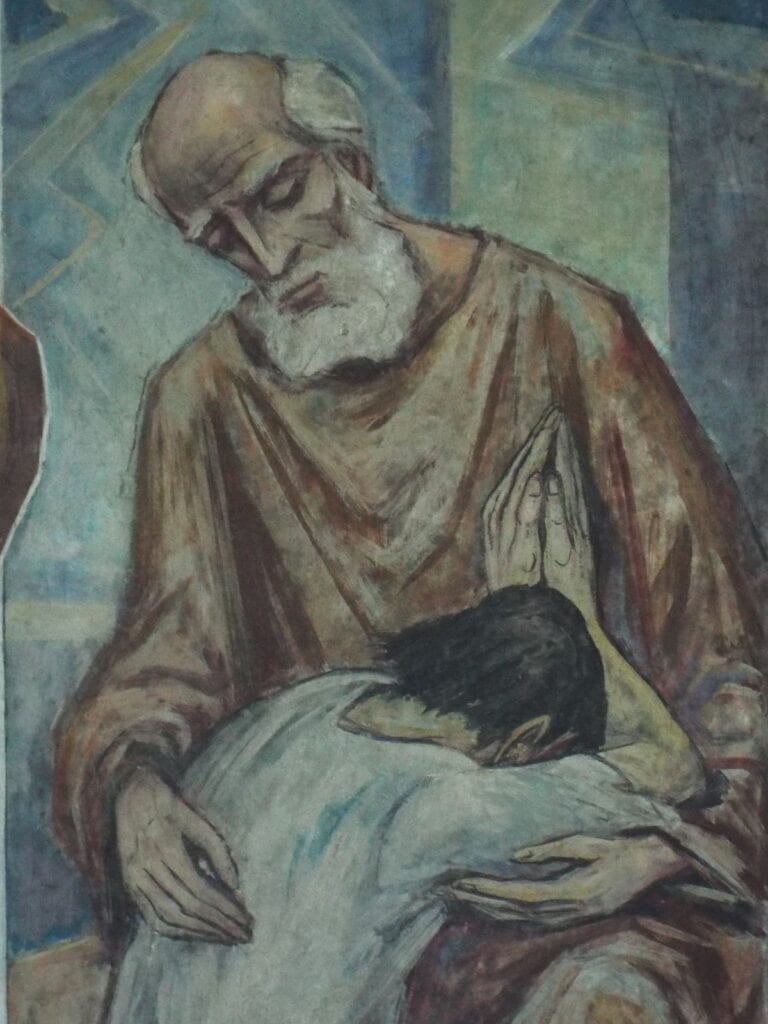In Ephesians 2:4-5, St. Paul tells us: “God, who is rich in mercy, out of the great love with which he loved us, even when we were dead through our sins, made us alive together with Christ.”
God who is rich in mercy. It is a mystery that bears reflection in our modern world. As missionaries who have thrown in our lot with people who aren’t always feeling God’s mercy and love, the concept of a God rich in mercy should touch the very core of our hearts.
Our post-modern mentality seems opposed to understanding God as a God of mercy. Ours is an age of remarkable developments in science and technology, which have led us to believe that we have dominion over the earth — and even outer space! What need have we for a merciful God in a society that prides itself on its autonomy and independence? We are the masters of our destinies; we are a self-determined people. Everybody can pull themselves up by their bootstraps and achieve success. Nothing is beyond us if we just try harder than everybody else. When something or someone gets in our way, we feel free to dispose of them. Witness the growing practice in our society of abortion, euthanasia and capital punishment.
So in this context, what will be our response to that great love of God our Father, who is so rich in mercy? How can we be the mouthpiece of God in the world? How can we become partners with the Triune God in the plan of redemption? We find the answers to these questions in the earthly life and ministry of Jesus.
Before his own townspeople in Nazareth, Jesus refers to the words of the prophet Isaiah: “The Spirit of the Lord is upon me, because he has anointed me to preach good news to the poor. He has sent me to proclaim release to the captives and recovering of sight to the blind, to set at liberty those who are oppressed, to proclaim the acceptable year of the Lord” (Lk 4:18-19). These words, according to Luke, are his first messianic declaration. They are followed by the actions and words that we know so well from the Gospels.
By these actions and words Jesus makes the Father present among us. It is very significant that the people in question are especially the poor, those without means of subsistence, those deprived of their freedom, the blind who cannot see the beauty of creation, those living with broken hearts or suffering from social injustice, and finally sinners.
Through his lifestyle and his actions, Jesus revealed that love is present in the world in which we live — a love that embraces everything that makes up our humanity. Faced with this great love, we can’t help but notice our own human frailty, both physical and moral. Yet, this love manifested in the human sphere is precisely what in biblical language is called “mercy.”
Jesus makes mercy a principal theme of his preaching. We are all familiar with the parable of the Prodigal Son (Lk 15:11-32) and the parable of the Good Samaritan (Lk 10:30-37). Many gospel passages show us the mercy of God in fresh ways. We need only consider the Good Shepherd who goes in search of the lost sheep (Mt 18:12-14; Lk 15:3-7), or the woman who sweeps the house in search of the lost coin (Lk 15:8-10). The evangelist Luke, in particular, treats of these themes in Jesus’ teaching, earning his gospel the title “the Gospel of mercy.”
In your quiet times with God, reflect on your own experiences of God’s love and mercy. Recall your own “prodigal” incidents when you have been embraced by the Father, rich in mercy. How has your experience of God’s love and mercy helped you be a mouthpiece for God in the world?
Pat Regan, MCA








0 Comments